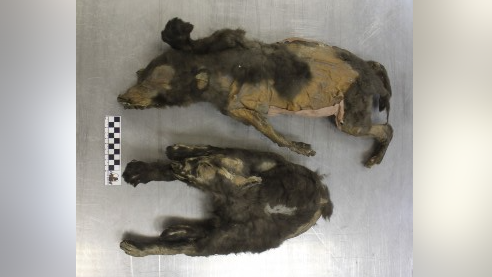Genes Predict Body Shape and Fatness

Scientists have long known that genes are the software of life, determining what a creature will look like and where the parts go.
"Genes tell the body where the head goes and where the tail goes, what goes on the front and what goes on the back," explains C. Ronald Kahn of the Harvard Medical School and president of the Joslin Diabetes Center in Boston.
No news there. But without looking at you, Kahn can examine a sample of your genes and tell you if you're shaped like an hourglass or a pear and whether you have huge hips or a beer belly.
"By looking at your genes, we can tell how fat you are and how your body fat will be distributed," Kahn said yesterday.
Fat genes
Some experts have called obesity an epidemic. The condition has been linked to genetics, but many researchers say poor diet and lack of exercise have played a role in the increase of obesity. Some even suspect it could be contagious. But anyone who thinks logically about it can imagine that we might inherit the tendency, just like blue eyes or big noses.
Figuring it all out is of great importance, because obese people are at greater risk of diabetes, cardiovascular disease, cancer and more. Specifically, those shaped like apples—with their fat concentrated in the abdomen—are at much higher risk for diabetes.
Sign up for the Live Science daily newsletter now
Get the world’s most fascinating discoveries delivered straight to your inbox.
Kahn's team examined the genes in fat around internal organs and under the skin of nearly 200 people thin and fat and in between, as well as in some mice.
Three genes—named Tbx15, Gpc4, and HoxA5—express themselves so distinctly that the differences can be used to predict a person's body mass index (BMI) and waist-to-hip ratio.
"This finding suggests that the expression of these genes could be related to the pathogenesis [production and development] of obesity," said Joslin researcher Stephane Gesta.
The results are published in the latest issue of the journal Proceedings of the National Academy of Sciences.
Now what?
The study raises huge questions: Does body shape predict obesity, or is it a result of obesity?
"While we don't know yet whether this genetic activity is a cause or an effect of obesity," Gesta said, "these data do suggest that different forms of obesity could be a developmental problem that begins very early in life."
And an even bigger one: Can you alter the potentially deadly fate your body shape might suggest is in store?
"Now that's the big question," Kahn said. "While we now can predict the fat pattern, we have no magic bullet to alter the outcome. But with these new findings, we have identified potential targets for perhaps one day changing body shape. We don't have drugs to alter the pattern now, but perhaps in the future we will."
Robert is an independent health and science journalist and writer based in Phoenix, Arizona. He is a former editor-in-chief of Live Science with over 20 years of experience as a reporter and editor. He has worked on websites such as Space.com and Tom's Guide, and is a contributor on Medium, covering how we age and how to optimize the mind and body through time. He has a journalism degree from Humboldt State University in California.

